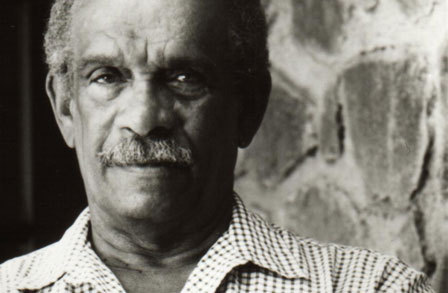
Born on the island of Saint Lucia, a former British colony in the West Indies, poet and playwright Derek Walcott was trained as a painter but turned to writing as a young man. He published his first poem in the local newspaper at the age of 14. Five years later, he borrowed $200 to print his first collection, 25 Poems, which he distributed on street corners.
Walcott’s major breakthrough came with the collection In a Green Night: Poems 1948-1960 (1962), a book which celebrates the Caribbean and its history as well as investigates the scars of colonialism and post-colonialism.
His recent collections include Tiepolo’s Hound (2000), The Prodigal (2004), Selected Poems (edited by Edward Baugh, 2007) and White Egrets (2010). In 1992, Walcott won the Nobel Prize in Literature. The Nobel committee depicted his work as “a poetic oeuvre of great luminosity, sustained by a historical vision, the outcome of a multicultural commitment.”
In addition to his Nobel Prize, Walcott’s honors include a MacArthur Foundation “genius” award, a Royal Society of Literature Award, and, in 1988, the Queen’s Medal for Poetry. He is an honorary member of the American Academy and Institute of Arts and Letters. He is Professor of Poetry at Essex University.

A Far Cry From Africa by Derek Walcott summary in hindi|A Far Cry From Africa poem analysis in hindi
editor@artvilla.com
robin@artvilla.com
www.facebook.com/PoetryLifeTimes
www.facebook.com/Artvilla.com






























![Derek Walcott: Omeros Ch1-4 and other poems [Caedmon Audio]](https://i.ytimg.com/vi/X6Olxc6u31g/default.jpg)









